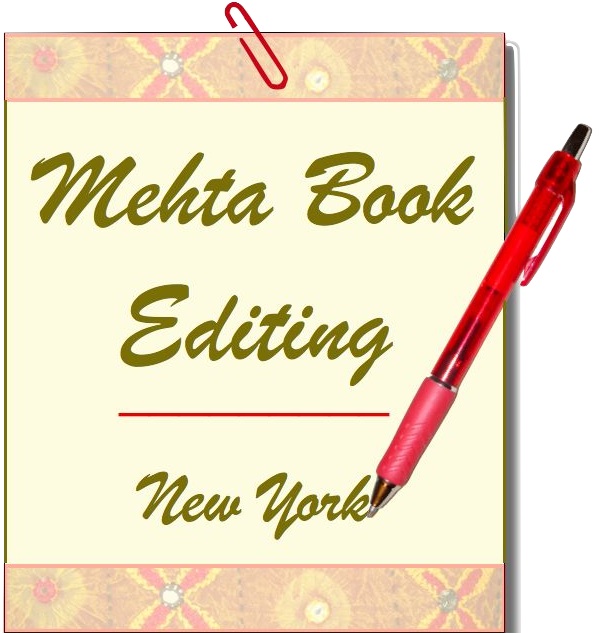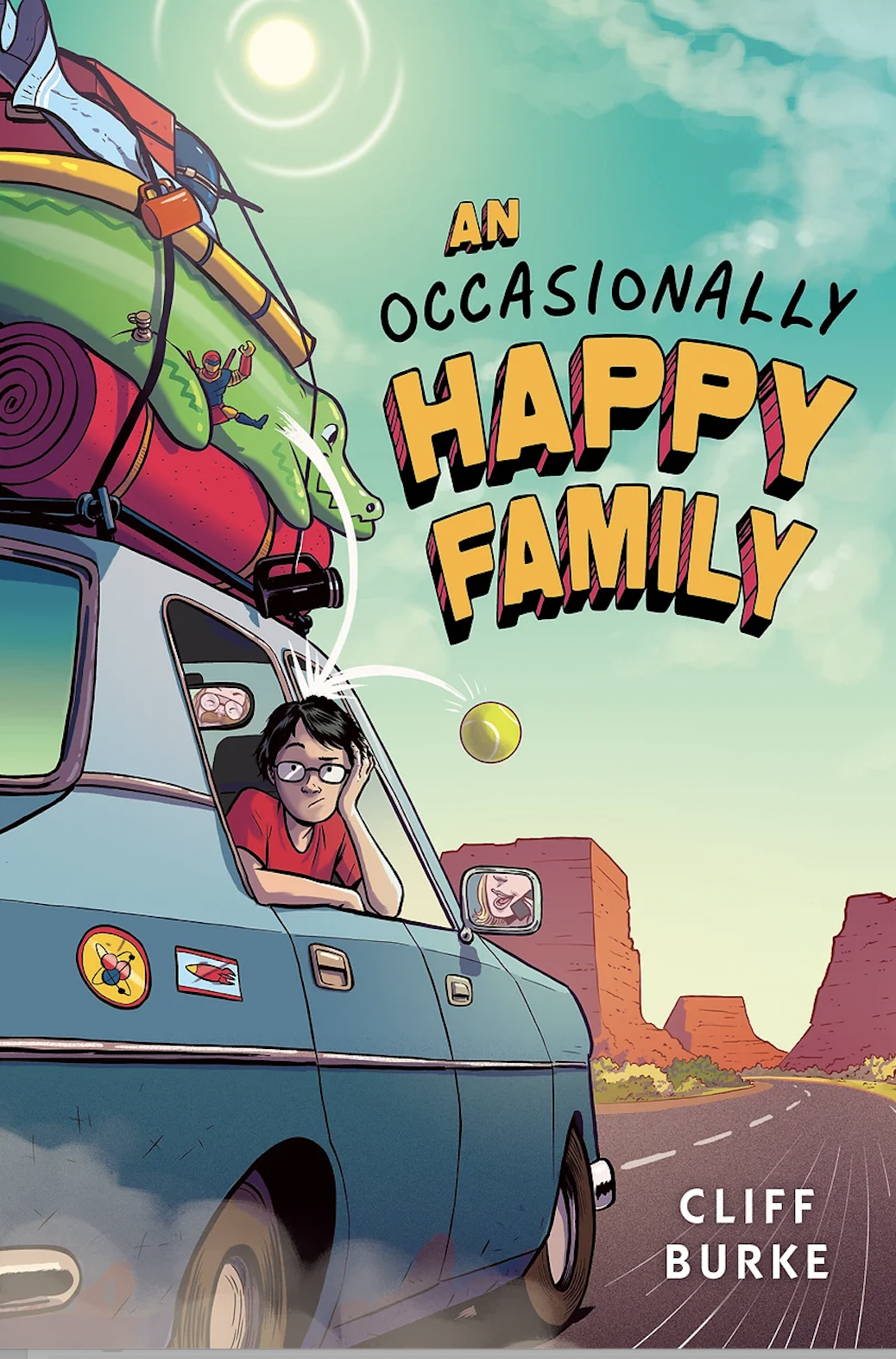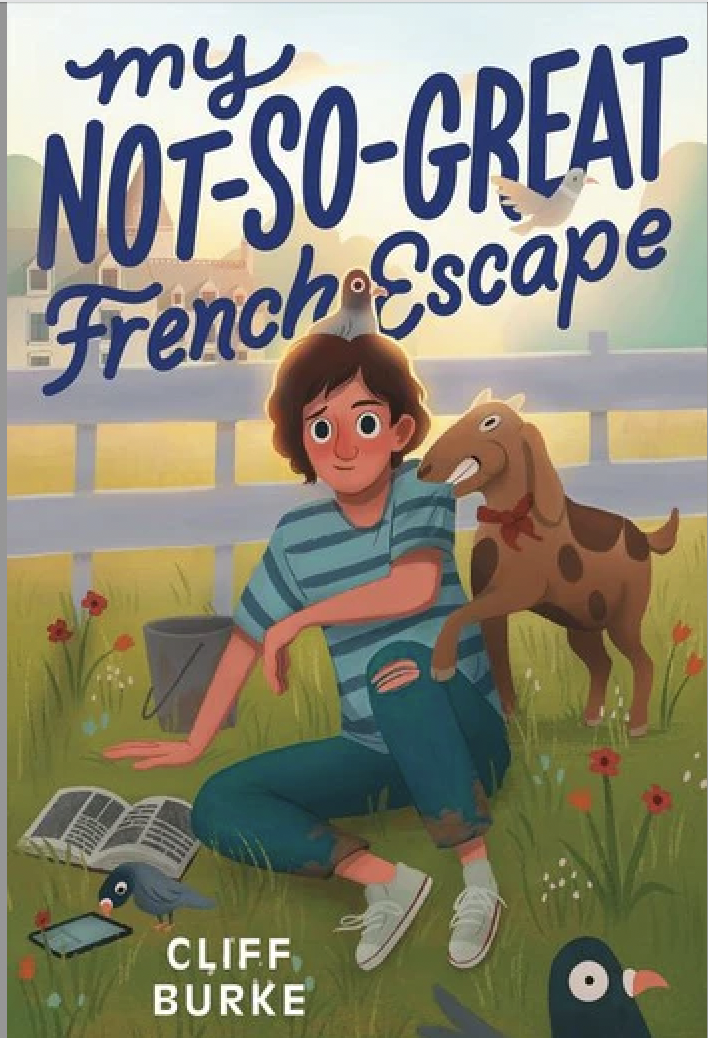An Occasionally Challenging Journey With a Happy Outcome: How Cliff Burke Landed an Agent, Book Deals & Accolades for His Middle Grade Novels
/To begin, tell us a little about your first published book, AN OCCASIONALLY HAPPY FAMILY, and what inspired you to write it. Was this your first full-length novel, or had you written other novels or short stories in the past?
AN OCCASIONALLY HAPPY FAMILY follows a week in the life of a family on their first vacation since the mother passed away the previous year. While there is a fairly sad emotional undercurrent to the book, it is also a series of funny scenes that depict their encounters with fellow travelers at one of the least popular national parks in the US.
And yes, this was my first attempt at a full-length novel. I wrote short stories throughout school and into college – I studied English Literature – but the longest thing I had ever written was a 30- page paper on Herman Melville which was extensively padded to reach the minimum word count.
Not long after we worked together in 2018, you landed an agent at Dystel, Goderich & Bourret via a query letter. Could you describe your approach to querying? What resources did you use to come up with a list of potential agents? Did you query widely, or did you have a small group of specific agents in mind?
First, thank you again for the detailed notes and edit; they helped not only with structural changes but with the confidence to finish the book and submit widely to agents. I was fairly methodical in my approach as I did not have any connections or real understanding of how the agenting process worked. I started with Manuscript Wish List, and made my own list of anyone representing middle grade fiction. Then, I narrowed down the list to a single agent at each firm – the one who seemed most inclined towards comedic stories, generally – and began sending my query letter at a rate of about 10 per week. To make this list, I consulted QueryTracker, which attaches a response rate next to each agent, and started with the agents most likely to respond.
After about 4 months of various rejections, I took a month off, retooled my query letter with the help of an editor, and began sending again. I still have the Excel spreadsheet of names and dates sent and responses received and tone of rejection, etc., so can share that I sent out a total of 55 queries and received two offers.
Once you signed with your agent, did you revise your novel again? Or did you and your agent focus mainly on coming up with a strategy to submit your novel to publishers? How did the submissions process to publishers compare with your querying process?
Yes, after signing, there were two more rounds of light edits – some character notes, particular scenes to sharpen or eliminate, general thoughts on tone. From there, my agent took over. He prepared the proposal and editor list, sent everything out, and kept me updated once responses started coming in.
I would say that the submissions process is less stressful on a day-to-day basis as you (or at least I) wasn’t receiving any of the direct rejections in my inbox, but it can somewhat hang over you as you never know when you will receive news and hope each day that someone will say yes. I’m currently on submission with a new book and am always checking the time in New York to see if maybe there is still time to receive good news before the end of office hours.
In 2019, you secured a book deal with Houghton Mifflin Harcourt (HMH) Books for Young Readers. Were there any surprises you encountered following the acquisition of AN OCCASIONALLY HAPPY FAMILY, happy or not? For example, were you able to provide feedback on your cover image? Expected to promote your book more (or less) than expected?
The biggest surprise was the one encountered by everyone - the pandemic and shut down of bookstores and everything else for a few months. I first received the cover image a week into lockdown and it was a bright moment when I needed it. Over time, though, being at home was beneficial as it meant I had a lot of time to work on edits and copy-edits (the school where I taught in Texas essentially ended the school year early with some minimal digital learning through the end of April and May). By the time the book was released in May 2021, bookstores and libraries were mostly open, and I was able to do some signing and eventual (virtual) visits with schools.
Within a few years, your next middle grade novel was underway at HMH around the same time HMH was acquired by HarperCollins. Could you tell us about MY NOT-SO-GREAT FRENCH ESCAPE and how this book deal came about? Did you notice any changes to the way your books were being published as larger corporate changes were taking place?
MY NOT-SO-GREAT FRENCH ESCAPE is about two former best friends struggling to reconnect while working on a French farm. As with the first book, it is funny but with an emotional undercurrent, and loosely based on my own experience working on a farm near Normandy with the WWOOF (Worldwide Opportunities on Organic Farms) program.
My agent and I submitted the book directly to the same editor as the first book, and it was signed two weeks before my first book came out. Then, a week later (I know the timeline because I keep all book-related emails), HMH was acquired by HarperCollins. I received the news five days before my first book came out and it did not affect the rollout in any way.
This past year, however, was a challenging one in publishing, and at HarperCollins in particular, and I do think the rollout of FRENCH ESCAPE (and every other HarperCollins title published during and immediately after the workers strike) was affected. To be clear, I 100% supported the strike and am thrilled that the workers stuck it out (even when temps were being hired as short-term replacements), but it did impact the release of new titles. The original release date was postponed, then reset to the original date, and later delayed again, only to finally come out on the original date. This was just three weeks after the end of the strike and, as a result, there was (understandably) little advance promotion. But so it goes.
By day you’re a teacher of sixth and seventh graders, who are your primary audience. How does writing inform the way you teach, or vice versa? For example, do you find it easier to connect with your students since you’re already so familiar with their age group? Were Theo and Rylan inspired in part by your students, or were these and your other main characters based primarily on your own experiences?
Teaching and writing definitely inform each other. I am now able to give better writing notes to my students after being professionally edited, and I can always remind them how many rounds of editing professionally published writers go through when they groan about doing more than one draft of anything. Reading aloud daily and leading a Literature Club where students read current middle grade books also gives me a peek into what aspects of modern middle grade books make kids laugh or groan, engage or bore them.
I am cautious, though, of using any personal details about students in my writing. There are phrases or snatches or dialogue here and there and personality archetypes that come out of the classroom, but the two central characters from my books are based on aspects of my own personality and experiences.
MY NOT-SO-GREAT FRENCH ESCAPE was Junior Library Guild Gold Standard Selection, and AN OCCASIONALLY HAPPY FAMILY was praised by Kirkus for being a “masterful look at loss and mourning wrapped up in a hilariously painful family vacation,” which is very true! Do you find such accolades and reviews encouraging—or do they create pressure for you as you write your next book? Is there anything you can tell us about your work-in-progress?
They are incredibly encouraging and helpful! Besides the obvious ego massaging and boosting, they are also helpful on a practical level. I have heard from numerous school librarians that they are unable to purchase new books without at least one starred review. So even a single positive review from a major publication can lead to your book finding more readers.
My current, finished possible-book is a light science-fiction story about a group of kids auditioning for the first manned mission to Mars. It’s well-researched but mostly funny with a bit of a darker edge. As mentioned above, it is out on submission now and will hopefully find a home soon. While that book is out, I’m slowly working on a novel-in-verse and a collaborative short story project.
Do you have any advice to writers out there in the query trenches who have yet to land an agent or book deal? Any writing tips or quotes that have helped you in your publishing journey?
Pace yourself, take a break if you need it but don’t give up, and ask for help. As detailed earlier, I have used many different online resources, critique partners, and professional editors to present the best possible version of my query letter and first ten pages. If you are confident in the quality of your book, this up-front polishing can go a long way in getting your full manuscript in agents’ inboxes. From there, you can just hope for the best.
See previous author interviews here.




